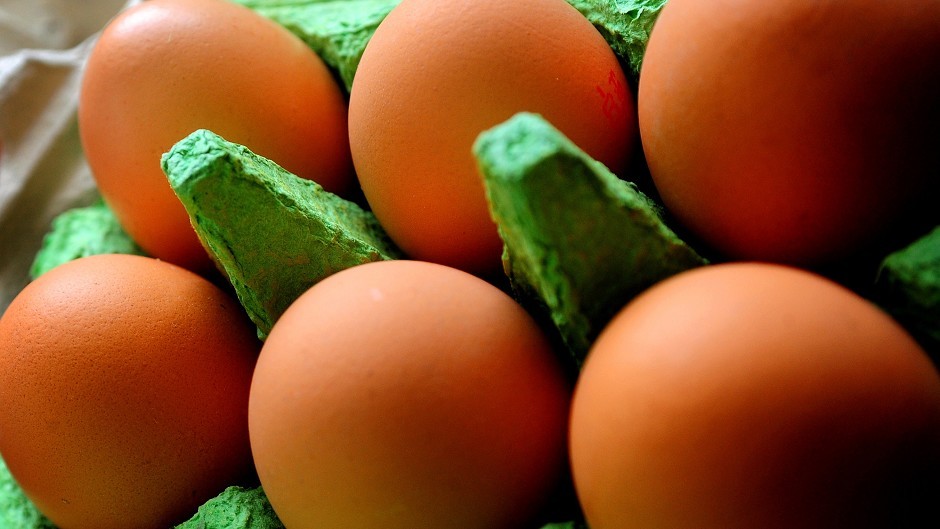Scottish shoppers have been urged to continue buying eggs from free-range hens which remain housed indoors due to the threat of bird flu.
Both NFU Scotland (NFUS) and the British Free Range Egg Producers’ Association (Bfrepa) have called for consumer support for the free-range poultry sector.
All poultry and domestic birds have been kept indoors since December last year, following outbreaks of the highly pathogenic H5N8 strain of avian influenza in parts of the UK.
From the start of this month poultry keepers have been permitted to let the birds back outside, provided they adhere to extra biosecurity measures such as making sure that birds’ feed and water cannot be accessed by wild birds.
However, many farmers have chosen to keep their birds inside and some cartons of free-range eggs are being stickered to inform shoppers that they have been laid by hens which are temporarily housed inside to protect their welfare.
EU regulations mean eggs from birds housed for longer than 12 weeks can no longer be labelled as free-range.
NFUS president, Andrew McCornick, who was newly elected to the post last month, said: “Many egg producers remain justifiably nervous about releasing birds at this time and some professional veterinary experts have advised against free range producers opening up their sheds. That is why, for those producers producing Red Lion-assured free-range eggs, the British Egg Industry Council is advising all packers regardless of whether the birds are inside or outside to use stickers on all packs of Red Lion-assured free range eggs indicating that the birds are being kept in barns but will resume their free range status once the risk from Avian Influenza has passed.
“We understand that supermarkets are aware of this approach and will support the industry in paying the additional associated costs of free range egg production, even where free range birds continue to be housed and packs stickered.”
He said the public could be reassured that Scottish egg producers have the health of their flocks as their number one priority.
Bfrepa chief executive, Robert Gooch, said the decision by some producers to keep their birds housed was short-term and it will soon be safe for all free-range producers to allow birds back outside.
“Producers are ensuring that housed birds are being well looked after and strict biosecurity protocols are followed at all times,” he added.
